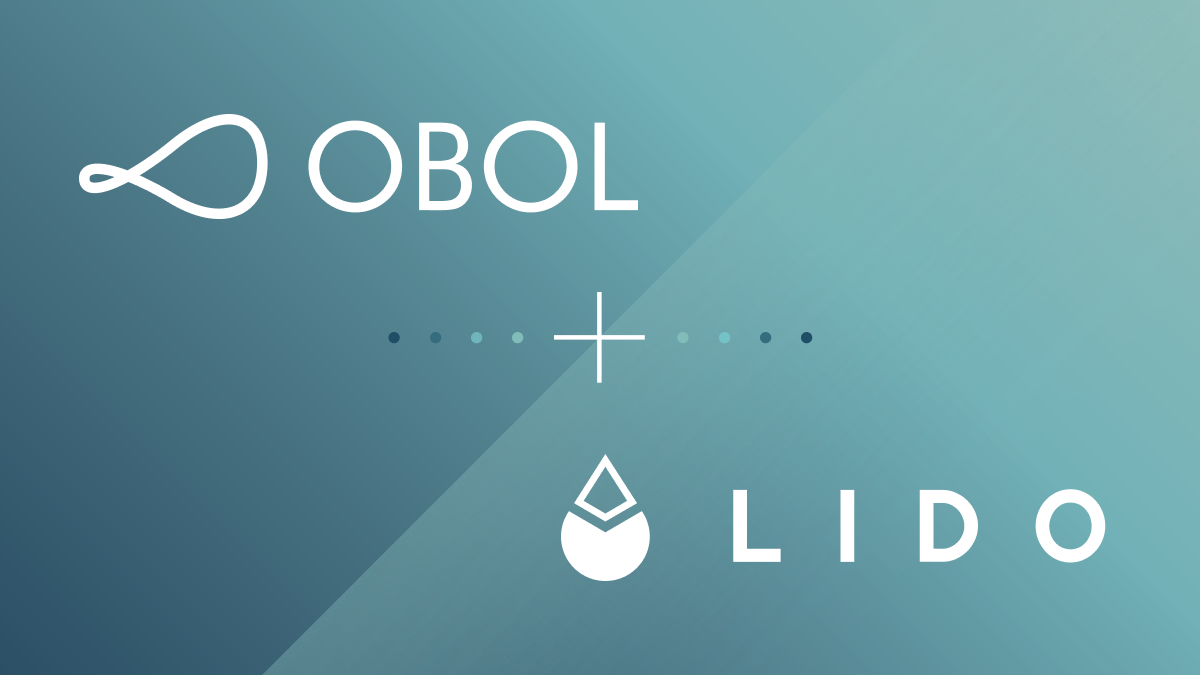Lido DAO Approves Research Grant for Obol
Obol Technologies receives a grant from Lido to research Distributed Validator Technology

Lido is the largest liquid staking provider on Ethereum to date, currently managing almost 1,250,000 Ether (~16%) staked on Eth2. The Lido DAO has been a vocal proponent of the importance of decentralisation and has begun to take steps to create the world's most performant decentralized Internet Bond by incentivizing the community to develop different technologies to support its mission.
As part of this effort, the Lido DAO has proposed and approved a $100k LDO grant to Obol Technologies to continue researching and building trust minimized infrastructure technology.
What is Distributed Validator Technology?
Distributed Validator Technology (or DVT, for short), is a new infrastructure primitive that enables a validator key to be split between independently operating validator instances, enabling Active Active redundancy across Eth2 infrastructure deployments. You can think of this as enabling your validator to operate like a multi-sig, removing single points of technical failure including:
- Availability Failure
- Validating Key Compromise
How does this technology achieve this?
Distributed Validators divide a single Ethereum validating key across four or more beacon node instances that come to consensus to decide on what should be signed by the validator. Threshold signature schemes can be used, which allow for a portion of the instances to be offline (e.g., 2 of 7) creating superior fault tolerance to the validator set-ups used today. This is known as Active Active redundancy in the Web2 world (many servers online simultaneously).
The most common form of redundancy used for high availability institutional products on the beacon chain currently is called Active Passive redundancy (One server on, another server on standby and waiting to come online if the primary goes down).
Running one or multiple instances on standby requires full copies of a private key to exist on two or more servers that are connected to the Internet. This architecture is inherently risky in an Ethereum staking where double signing by a validator results in a validator getting slashed and ejected from the network. A large majority of slashings on the beacon chain to date have been a result of faulty Active Passive implementations resulting in double signings. Moreover, the chances of key theft are magnitudes higher when it exists in full on an Internet connected server. With a divided validating key, the entire private key for a validator never exists anywhere and is only simulated between a group of instances each holding a subset of the key.

How will Obol utilize the grant?
The Obol core team will be using the granted LDO to become active participants in Lido’s governance system. We appreciate the vote of confidence from the Lido community and look forward to voting and making proposals to help the community decentralize its governance.
The Obol core team will continue our work building multi-client and multi-operator DVT technology for the public good. As we deeply care about transparency we will keep the Lido community updated about our findings and testing opportunities through developer updates.
The Obol team has been researching and building out Proof of Stake Ethereum for three+ years and is responsible for a number of widely used tools and research efforts in the ecosystem such as the Eth2 LaunchPad, the Eth2 Calculator, the thesis of Internet Bonds in Eth2, and early DVT research with the EF.
In the coming weeks we will be sharing more information on our vision for trust minimized staking on public networks through the use of the DVT primitive! If you are interested in participating in the effort please take a look at our job board, we are hiring engineering roles across the stack and would love to get introduced!

